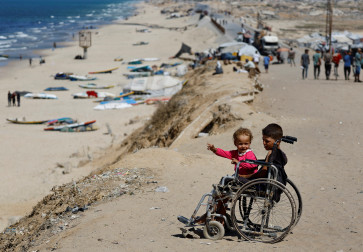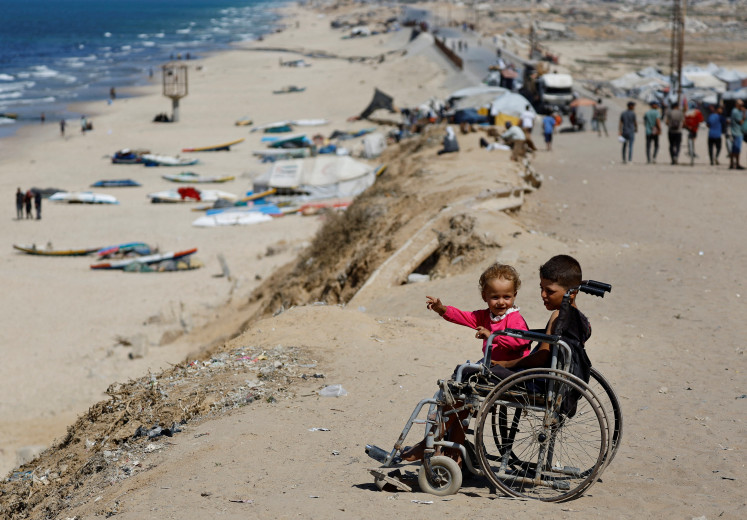Popular Reads
Top Results
Can't find what you're looking for?
View all search resultsPopular Reads
Top Results
Can't find what you're looking for?
View all search resultsChinese cultural diversity
Signature menu: Mutton satay is a special dish in the Beiyuanmen Muslim area in Xiâan, Shaanxi province, China
Change text size
Gift Premium Articles
to Anyone
Signature menu: Mutton satay is a special dish in the Beiyuanmen Muslim area in Xi'an, Shaanxi province, China.
Many people are surprised to find that China is home to 55 different ethnic minorities and has a significant Muslim population.
Chinese Muslims can be found all over the country. A big part of this population is the Uyghur people who mainly reside in Xinjiang, a western province that borders Central Asian countries like Kazakhstan, and in major cities like Xi'an, Shaanxi province.
Differing from the Uyghurs, the Muslims in Xi'an are predominantly of the Hui minority. If it weren't for the skull caps, they would blend right in with the majority Han people. Xi'an also boasts some delicious Muslim food.
The Beiyuanmen Muslim area is a fantastic place to wonder down. This street is paved with dark colored stone with green trees providing heavy shade during the summer; the buildings on both sides of the street are modeled in the styles of both the Ming (1368-1644) and the Qing Dynasties (1644-1911). Some of the constructions are restaurants while others are stores. All shops and restaurants in the street are operated by Muslims.
The street has a long history. It is said that in the past, foreign diplomatic envoys and merchants lived here, then married and had children, so gradually the population increased. Today, most of the inhabitants here are the descendants of those immigrants.
All the Muslims here are devout followers of Islam and they form a tight knit community that maintains its own culture and traditions, even in a modern society. A few years ago, a sign hung over the street to tell people they were entering an Islamic street, but for some reason that sign no longer exists.
Many tourists walk on this narrow street aligned with stores on both sides. The stalls sell almost anything you expect. The street is lined with restaurants and if you have sanitary concerns when eating in China, you can rest assured you will eat safely here, since the food is halal.
As with most meat that Muslims eat, lamb is the easiest to find here, but chicken and beef can also be found.
Just don't go looking for pork, because that isn't halal.
Fresh from the pan: A Chinese Muslim woman cooks in front of her restaurant as she prepares to break the fast.
Easy rider: A Chinese Muslim man rides a motorcycle on Beiyuanmen Muslim street.
Served cold: Traders prepare various soft drinks.
Faith in focus: A sign in Arabic shows that the shop owner is a Muslim.
Wall of color: A diverse set of children's toys are also displayed on the Muslim street.
Let them eat mutton: A woman prepares an assortment of mutton-based dishes.
' Text and photos by JP/R. Berto Wedhatama

















